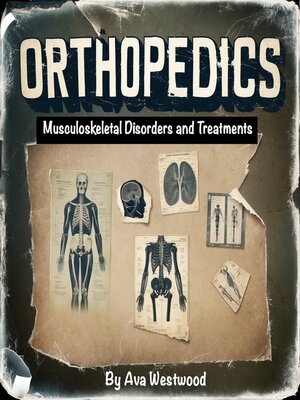
Sign up to save your library
With an OverDrive account, you can save your favorite libraries for at-a-glance information about availability. Find out more about OverDrive accounts.
Find this title in Libby, the library reading app by OverDrive.



Search for a digital library with this title
Title found at these libraries:
| Library Name | Distance |
|---|---|
| Loading... |
Orthopedics is a branch of medicine focused on the diagnosis, treatment, prevention, and rehabilitation of musculoskeletal disorders. These disorders affect the bones, joints, muscles, ligaments, tendons, and nerves, and can result from trauma, wear and tear, congenital conditions, or diseases. The field of orthopedics aims to restore function, reduce pain, and enhance the overall quality of life for individuals suffering from musculoskeletal problems. Orthopedic care encompasses both surgical and non-surgical treatments, depending on the condition and the patient's needs.
The role of an orthopedic surgeon extends beyond just performing surgeries. They play a crucial part in diagnosing musculoskeletal conditions, creating treatment plans, and guiding patients through recovery. Orthopedic surgeons often collaborate with physical therapists, radiologists, and other specialists to provide comprehensive care. They manage conditions ranging from acute fractures and dislocations to chronic disorders like arthritis and osteoporosis. Orthopedic surgeons also handle congenital deformities, sports injuries, and complex musculoskeletal trauma. Their expertise lies not only in performing surgeries such as joint replacements and spinal surgeries but also in using advanced diagnostic tools to assess conditions accurately.
The history of orthopedics dates back to ancient times when early physicians attempted to treat broken bones using splints and other rudimentary methods. Over the centuries, the field has evolved, incorporating advancements in medical science, technology, and surgical techniques. In the 19th century, orthopedics began to emerge as a distinct medical specialty, with pioneers such as Hugh Owen Thomas, often referred to as the "father of orthopedics," contributing significantly to the development of orthopedic practices.







